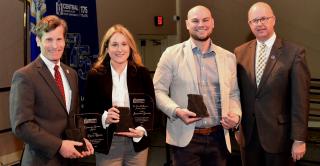
Permission from the Central Director of Institutional Research and Assessment is required prior to collecting data from Central students or employees when Central databases are involved. Only the Director may permit access to Centraldatabases. Personally identifiable information either in the student’s record or in the employee’s record will be released only as permitted by laws governing access to those records. (In the event that the Director is unavailable, permission may be obtained from the Provost and Vice President, Academic Affairs.) Only the Chief Human Resources Officer may release such information regarding employees. Correspondingly, only the Registrar may release information regarding students to faculty, administrators, staff, or consultants employed by the University that have a “legitimate educational interest.”
When seeking permission to collect data from an existing Central database for research purposes, the investigator must provide a copy of the research proposal and the human subjects review approval from the Central Human Studies Council to the Director of Institutional Research and Assessment. Depending on the nature of the request, the Director may consult with appropriate members of the campus community, such as the Chief Human Resources Officer or the Registrar. Generally, proposal reviews will be accomplished within a week.
When institutional research is being planned, consultation between the researcher and the appropriate campus designee is required to prevent duplication of effort, facilitate coordination with other research institutional activities, and protect members of the University community from unnecessary or inappropriate intrusions into the classroom, the workday, or campus facilities. In determining whether to permit a data collection activity, the University is pledged to respect academic freedom.



